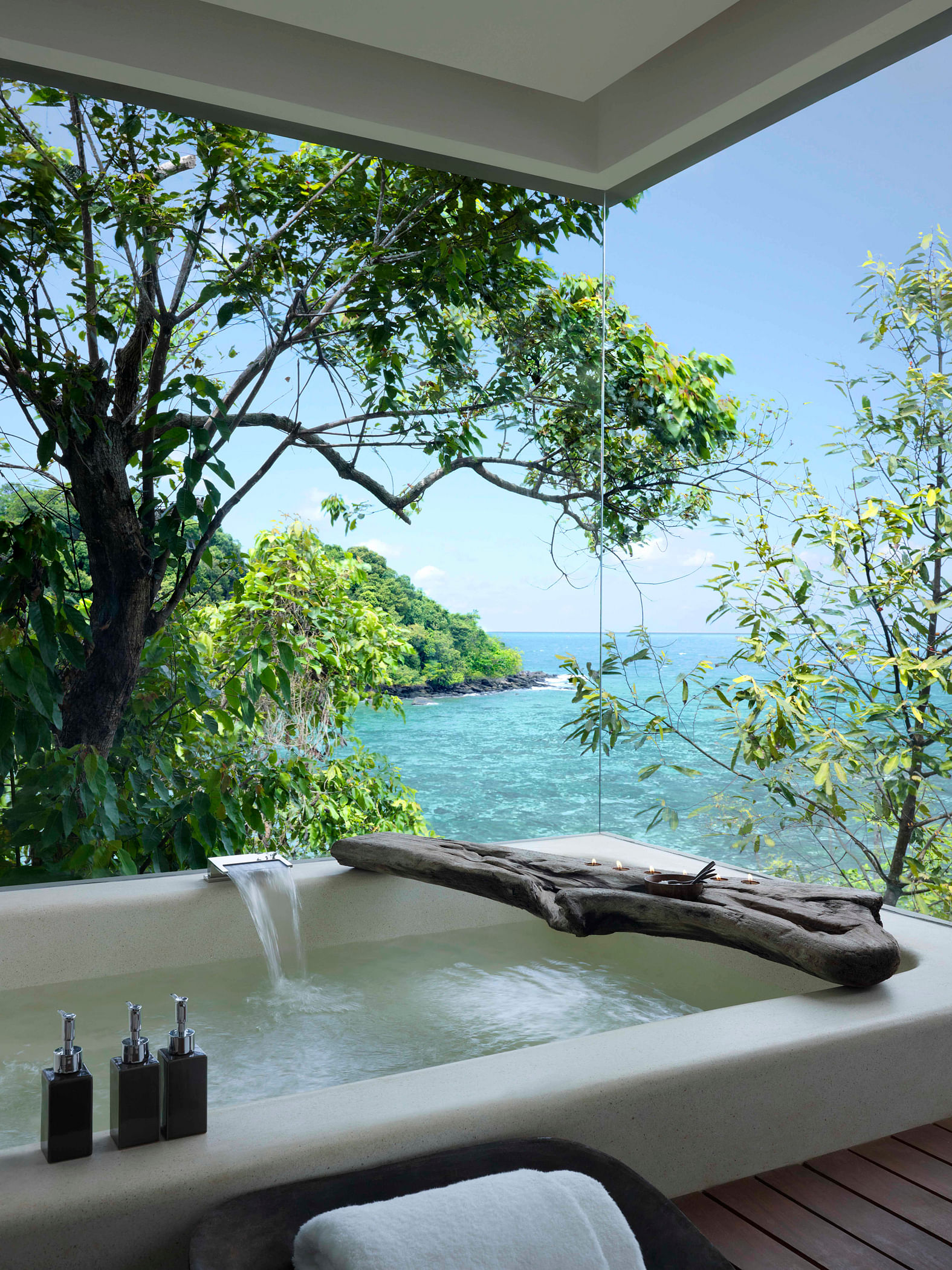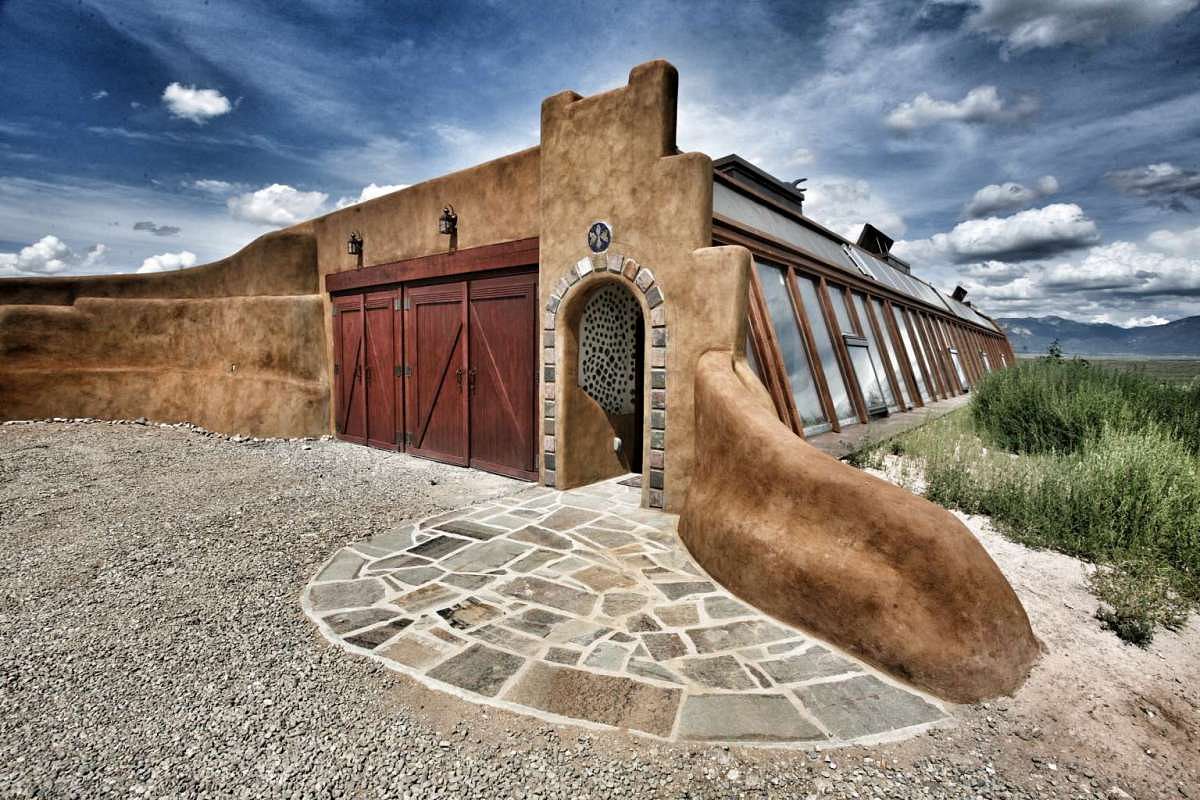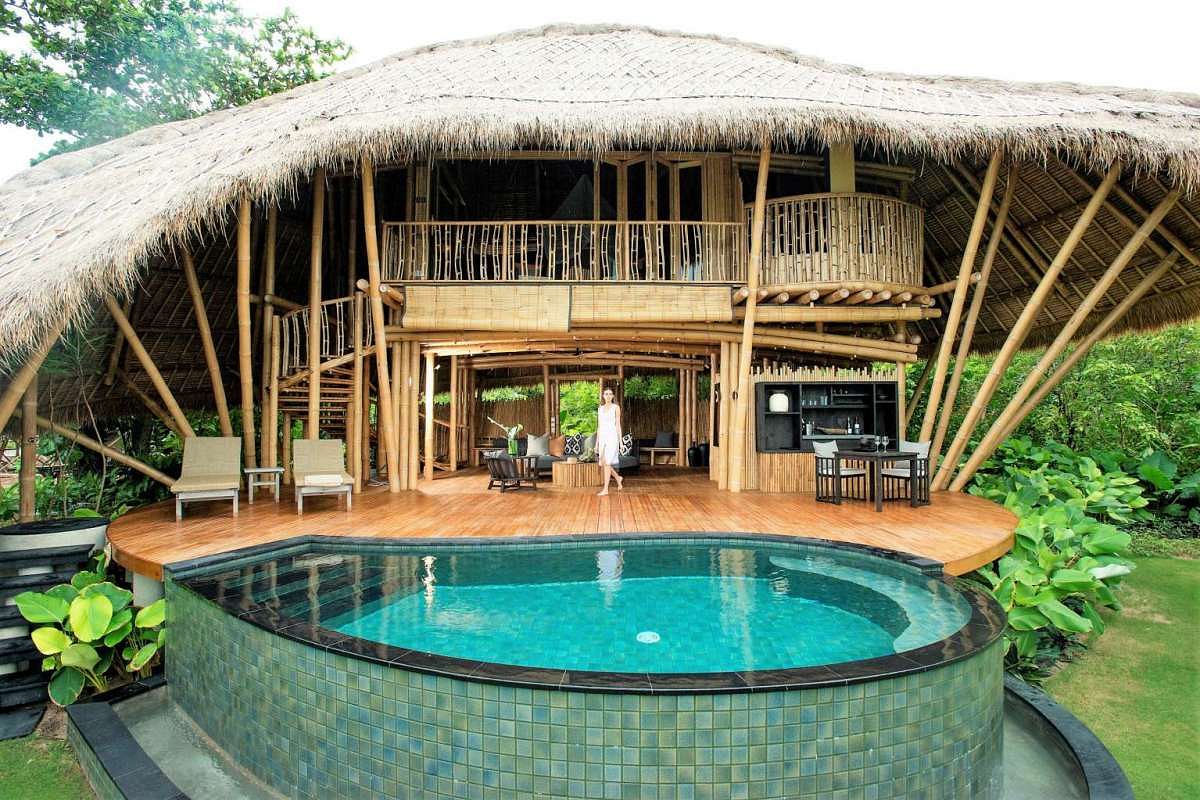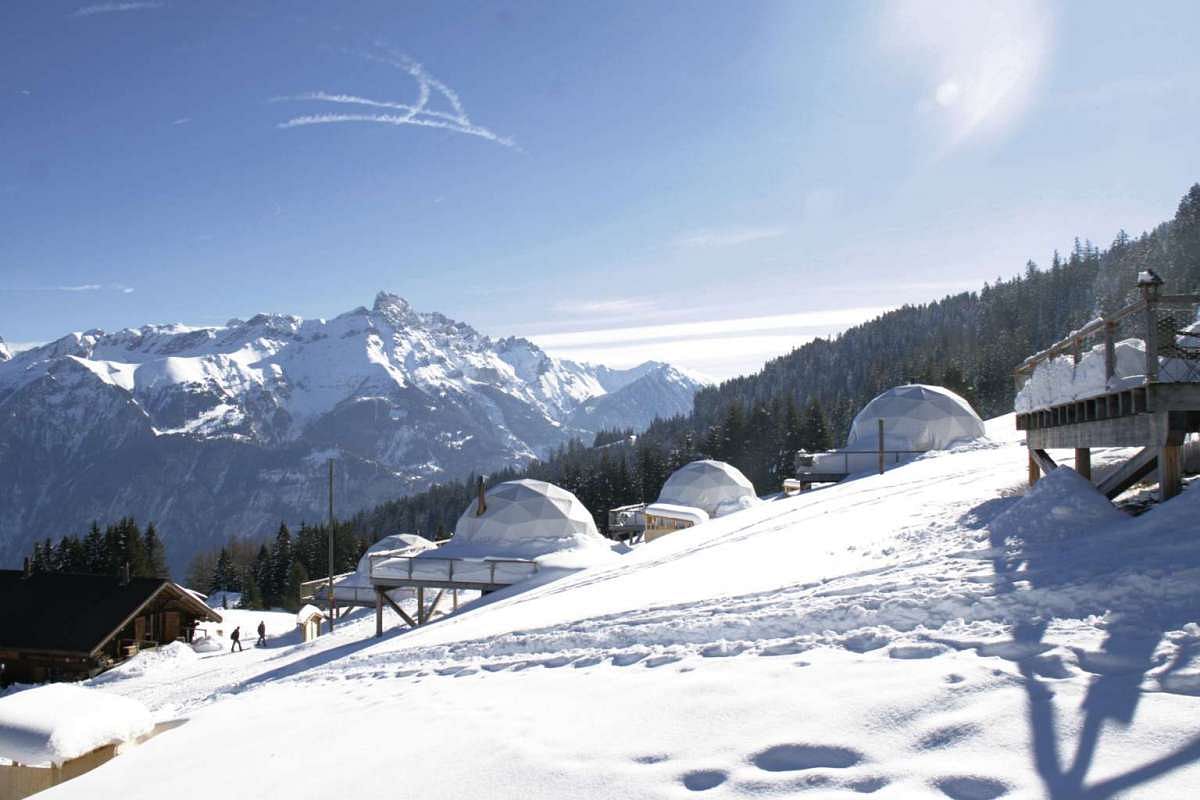Hotels join the green bandwagon
With more travellers looking for eco-friendly options, more hotels are being built and run that way to meet the demand
Gone are the days when urging guests to reuse their towels earned hotels an environmental stamp of approval.
These days, more travellers are seeking hotel accommodation in line with their desire to reduce their ecological footprint.
Travel search engine Kayak, which has an "eco-friendly" filter for hotels, says there has been a 30 per cent growth in Singapore-based searches for such hotels, compared with last year.
The trend can be seen globally as well.
An AccorHotels study published last year found that out of the more than 7,000 hotel guests surveyed in seven countries - including Germany, Australia and Indonesia - twothirds were willing to pay higher rates for a hotel with green practices, such as recycling waste water, minimising the use of plastic and purchasing local produce.
In its Sustainable Travel Report published last year, Booking.com revealed that 68 per cent of 10,000 responders said they would be more likely to choose accommodations if they knew they were eco-friendly.
Fortunately, these travellers now have more options.
High demand prompted hotel group Soneva (www.soneva.com) to open its third sustainable hotel - and second in the Maldives - last year. The 25 villas at the new Soneva Jani resort are made from sustainable wood. The hotel also has organic vegetable gardens and a waste management facility - it aims to eventually be zero-waste - and will soon install a new solar plant.
On a larger scale, 98 per cent of AccorHotels' 4,100 hotels globally now stock guestrooms with ecolabelled products, 89 per cent now recycle their waste and 99 per cent have banned endangered seafood from their menus - targets set in 2011 and met in 2015.
In that five-year period, there was also a 5.5 per cent cut in the hotel group's energy use and a 6.2 per cent drop in carbon emissions.
The company plans to do more: It will cut energy consumption a room and water consumption a night by 5 per cent by next year, reduce food waste by 30 per cent by 2021 and plant 10 million trees by 2021.
The Carlson Rezidor Hotel Group started offsetting the carbon footprint of meetings and events held at its properties in 2013.
So far, the group, with 1,100 hotels around the world, has offset 35,000 tonnes of carbon globally, with initiatives such as investing in renewable wind energy in India and planting trees in the Great Rift Valley in Kenya. It has also cut energy use by 21.5 per cent across 26 of its Asia-Pacific hotels since 2009 - the equivalent energy needs of 25,658 four-people households in a developed country for a year - and reduced water use by 11 per cent.
These changes meant US$6.9 million (S$9.8 million) in savings over seven years for the group, which intends to lower its carbon footprint by 10 per cent globally by 2020.
Ms Nathalie Leung Shing, AccorHotels' director of communications and corporate social responsibility in the Asia-Pacific, says such initiatives are important as the environment is the raw material of tourism.
"The biggest challenge the industry faces is the fast rate of development, which by its nature puts demands on the environment. We must ensure we play our part in educating developers, our guests and our staff on how they can limit their impact," she says.
Boutique hotel groups are also ramping up their green initiatives.
In September last year, the boutique luxury Alila Hotels & Resorts (www.alilahotels.com) rolled out a new waste-management system across its five hotels in Bali. Waste plastics, such as wraps and films, are converted into crude oil, which can be distilled for reuse as fuel in the hotels. This, and other green initiatives, saved Alila more than US$220,000 in operational costs at one hotel alone, over five years.
Travel search engine TripAdvisor now has more than 12,000 listed properties on its Green Leaders programme, which it started four years ago to highlight hotels and bed and breakfasts with environment- friendly practices.
Environmental consultancies such as EarthCheck, Greenview and Green Key, which help hotels to trim resource use, are also seeing more customers. There are now 465 EarthCheck-certified members across 70 countries and Mr Stewart Moore, chief executive and founder of EarthCheck, says the 30-year-old company has seen membership increase by about 70 per cent over the past decade.
Green Key, an international environmental consultancy and rating agency based in Denmark, says the number of its clients has grown about 10 per cent annually since 2013. More than half of the 2,550 Green Key establishments worldwide - including restaurants and attractions - are hostels and hotels.
And Greenview, with offices in Singapore and the United States providing sustainability reports and strategies for the hospitality industry, has nearly doubled its business in volume and revenue over the last three years.
In Singapore, innovative environmental enterprise Papayapaths is changing the way hotels get rid of waste. Through its H3Rs programme, it provides a platform for hotels to connect with local charities so that good-quality furnishings will go to people in need during refurbishments.
So far, the programme has diverted 18 tonnes of furniture from the landfill - including providing beds for senior citizens and old towels and linen to an animal shelter. Forty-seven charitable organisations have subscribed to the programme, with another 50 hotels expected to come on board this year.
Hotels are going green, says Mr Gevin Png, course manager of hospitality and tourism management at Temasek Polytechnic, to cut costs and as a branding exercise.
"It's good to be seen as a brand leader, to win green awards and to be included in green lists, which have influence on customers' choices," he says.
"Hotels and resorts, particularly those with golf courses, are one of the biggest users of resources, especially in developing countries, where big resorts often take up a significant amount of the local water and power supplies," he says. "So if hotels take their eco-initiatives seriously, it will benefit the local communities and the world in general.
"Such hotels also serve as a way to educate guests about their impact on the environment."
But more must be done, say environmental experts, who point out that the travel industry is growing.
Hotels and resorts, many of which operate around the clock, 365 days a year, consume a large amount of resources and produce a lot of waste.
In 2015, the total carbon dioxide emissions from global passenger air travel was 566 million tonnes, a figure that is set to rise given that, since 2009, international tourist arrivals have increased by 4 per cent or more each year.
It is bad news for the environment if hotels in Asia continue to manage their resources the way they do. An EarthCheck study conducted last year found that hotels in Asia use twice as much water a guest a night, compared with hotels in Australia and New Zealand.
According to Mr Moore, if the environmental footprint made by the world tourism industry was compared with the footprint of a country, tourism would be the fifth-biggest polluter worldwide.
"Sustainability has changed from a well-intentioned discussion to a critical need for immediate action. The vast majority of operators are still not doing enough, despite consumer expectations of more responsible tourism and increasing vocal concerns from local communities," he says.
Ms Grace Kang, managing partner of Greenview, says the biggest challenge is convincing hotel managements that sustainability should sit at the core of their business model and is not an expensive undertaking. "They don't know where to start or don't have the right tools. Some hotels have this misconception that it will be costly to be sustainable," she says.
As someone who seeks to minimise her environmental impact wherever possible, Ms Erica Wong tries to pick environment-friendly hotels for business and leisure trips, as long as they are comparable in facilities, location and price.
But the 38-year-old, who works in publishing, says a lot boils down to the individual. "Sometimes, a hotel may say it is eco- friendly, but its hallways are lit all the time and it still produces a lot of waste.
"I think it is about how you use, or don't use, the resources and amenities. Not using the single-use toothbrush, for example, or making sure to tell the cleaning staff that sheets and towels do not have to be changed daily, are important."
Singaporean Shermain Pea, 28, general manager of Meguru Corporation, a start-up that helps to build sustainable towns and societies in Japan, is always on the lookout for eco-conscious accommodation, restaurants and activities when she travels.
The hotel industry, she says, can do more to educate travellers. "There should be more eco tours available for people to learn about what eco initiatives are and be inspired by them," she says.

Song Saa Private Island
Song Saa Private Island (songsaa.com), a 24-villa luxury resort, opened on two small islands in Cambodia's Koh Rong Archipelago in the Gulf of Thailand in late 2012.
Co-founded by Australian husband-and-wife team Rory and Melita Hunter, each villa was built using local timber and sandstone and decorated with artwork and furniture made of driftwood and repurposed local materials, which Ms Hunter, a designer, crafted by hand.
Low energy light-emitting diode (LED) lights are used in every room and the resort gets its water from an aquifer on the nearby island, Koh Rong. The water is pumped and filtered according to demand at the hotel's filtration plant.
To reduce freshwater usage, the water for each of the villa's pools is half fresh water, half salt water, and used water is passed through a multi-stage sewage treatment plant. Waste water is stored for irrigation and flushing.
No non-recyclable materials are used on the islands and all organic waste is turned into compost.
Much of the produce served in the resort's restaurant is grown locally and in an on-site garden, and even the drinking straws are locally made out of bamboo.
Through their non-profit Song Saa Foundation for sustainable development, the couple also helped create Koh Ouen Marine Reserve, Cambodia's first marine-protected area, which now covers 200 sq km around the islands and aids in coral reef conservation, the clean-up and restoration of mangroves and seagrass beds, sponsoring of marine research and monitoring of the impacts of climate change.
The foundation also provides healthcare, education, stationery, water filters and a solid-waste management system to surrounding villages.
Prices for villas at the resort start at US$1,000 (S$1,420) a night and include meals.
Earthships

For more than 45 years, American architect Michael Reynolds has been using natural and recycled materials, such as dirt, used car tyres and glass bottles, to create radical homes that are fully sustainable.
Completely cut off from the electric and water grids, the houses - known as Earthships - produce their own electricity, collect their own water, treat their own sewage and grow their own food.
Solar panels, strategically placed glass and densely packed walls regulate the buildings' internal temperature, making them remarkably energy-efficient.
Through a simple yet efficient network of channels and pipes, every drop of water that lands on an Earthship roof is reserved and used four times, from washing at the sink to watering plants in the greenhouse to flushing the toilet, so homes do not need to take a single drop of water from the ground.
Guests have been able to rent Earthships for overnight stays since 1996. Five are available through Earthship Biotecture (earthship.org) at the company's headquarters in Taos, New Mexico (pictured), while others can be found through home-sharing platform Airbnb.
The cost of a nightly rental varies by location and size, and start at about US$150 (S$210) a night.
Bushmans Kloof Wilderness Reserve & Wellness Retreat

Three hours north of Cape Town in South Africa, in the wilderness of the Cederberg Mountains, the award-winning Bushmans Kloof Wilderness Reserve & Wellness Retreat (www.bushmanskloof.co.za) is a sanctuary for humans and wildlife alike.
The 7,500ha property contains vast fields of wild flowers and more than 130 ancient Bushman rock art sites.
It is home to more than 150 kinds of birds, 750 plant species and more than 35 species of mammals, including the Cape Mountain Zebra, an endemic species down to just 400 members 30 years ago, but of which there are now 1,200 worldwide. Bushmans Kloof owns one of the world's largest privately owned herds of the animal.
The luxurious, 16-room hotel - prices start at 8,790 rand (S$940) a night - also helps to track and rejuvenate the elusive Cape leopard population, which is thought to be less than 1,000-strong; plants the endangered native Clanwilliam cedar tree; and restocks endemic fish populations in lakes and rivers.
At the hotel's Bushmans Kloof Heritage Centre, guests can learn about the extraordinary collection of ancient Bushman artefacts, including jewellery, dancing sticks, hunting kits, musical instruments and paraphernalia, and gain insight into the lives of the ancient Bushman tribes who lived in these mountains for 120,000 years.
The hotel is one of 55 National Geographic Unique Lodges of the World and only guests are allowed to enter the reserve, which limits human impact on the environment.
Any food waste is sent to a nearby pig farm; paper and plastics are recycled; and waste water is used to irrigate the hotel's gardens, so guests can sit back and admire the raw beauty of the environment guilt-free.
Cempedak Island

Leveraging on the expertise gained over 10 years in operating Nikoi Island (www.nikoi.com), the award-winning eco-luxury island resort off Bintan, Nikoi's sustainability-focused owners have opened a brand-new resort.
Cempedak Island (www.cempedak.com), which opens this month, is also located in the Riau Archipelago and is poised to outshine its elder sibling's eco- friendly credentials. Getting there requires an hour-long ferry ride to Bintan, about an hour's drive to the east coast of Bintan and then a 25-minute speedboat ride.
There are 20 villas on the adults-only island, which accommodates a maximum of 40 guests. Each 150 sq m, two-storey villa ($600 a night), with a broad deck, a plunge pool and expansive sea views, has been handcrafted using locally sourced and sustainable bamboo.
Tucked into the privacy of the jungle, the villas are designed to blend into the environment and maximise natural airflow, negating the use of air-conditioners.
Solar panels provide water heating and the resort plans to install additional high-energy solar panels and battery banks that will allow the island's generator to be switched off for up to 12 hours a day, further minimising energy consumption. Cempedak buys almost all its supplies at local markets from small traders and directly from farmers when possible. The resort has its own fruit and vegetable garden, makes its own tonic water and cuts its own straw out of bamboo.
It collects rainwater and stores enough to provide up to two months' water supply. Its recycling and reuse of water, combined with water-efficient equipment, means it is water self-sufficient.
Plastic or aluminium is recycled. Glass is crushed and reused to make cement, food waste is processed into chicken and fish meal, and all other organic waste is composted.
Whitepod Eco-luxury hotel & Alpine experience

At 1,400m above sea level in the mountains of southern Switzerland, the igloo-like accommodation at the Whitepod Eco-luxury hotel & Alpine experience (www.whitepod.com) provides guests with a unique eco-tourism adventure and unforgettable views of the surrounding countryside.
An hour's drive from Lausanne and a 1½- hour's drive from Geneva International Airport, the 15-pod resort is embedded in nature, away from crowds, busy streets and cars. Guests must walk along the mountain side from the reception to their dome-shaped tents - made of steel, fabric and plastic thermoshield lining - which are individual bedrooms equipped with wood-burning stoves, organic luxury bedding, fully serviced bathrooms and a large terrace with views of the Alps.
The eco-hotel has energy- efficient fireplaces, electrical devices and water boilers; uses local spring water on low-flow appliances; engages local food and beverage suppliers; uses only biodegradable cleaning products; and sources sustainable paper products - everything from printing paper to brochures, tissue and toilet paper.
The colour of the pods change so they blend in with the seasons - white in winter and green in the summer, and the pods can be dismantled with little impact to the environment.
A night in a pod starts at 290 Swiss francs (S$405) in summer and 405 francs in winter.
Correction note: In an earlier version of the story, we said that 47 hotels had subscribed to the programme instead of 47 charitable organisations. This has been corrected. We are sorry for the error.
Join ST's Telegram channel and get the latest breaking news delivered to you.
A version of this article appeared in the print edition of The Sunday Times on March 12, 2017, with the headline Hotels join the green bandwagon. Subscribe

